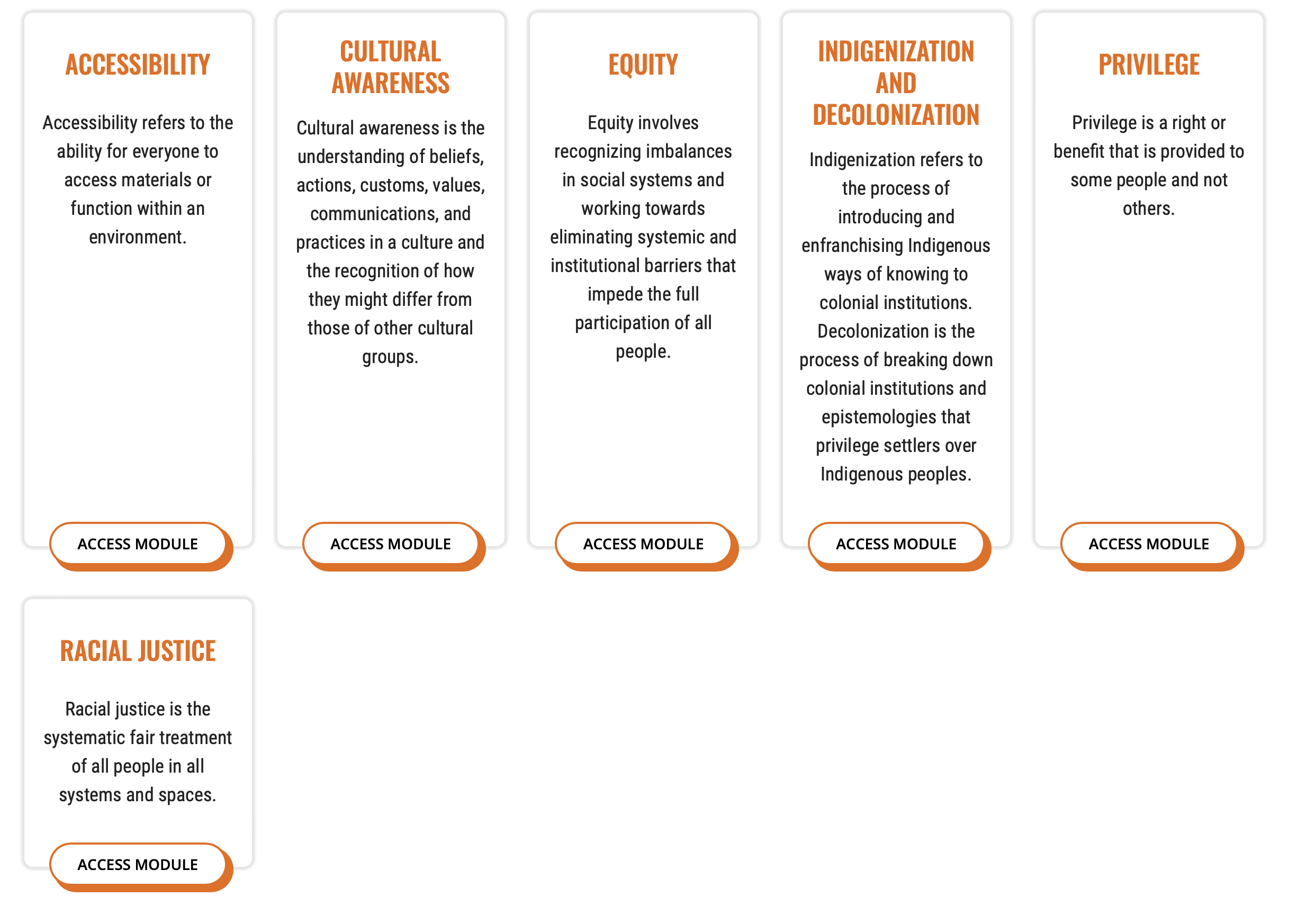
 I
I
The content and resources on the Uncovering the Hidden Curriculum website were designed to foster inclusive post-secondary education through explicit skill development. These skills can help learners succeed in their academic journey while supporting their mental health. This activity will focus on one of the five available domains, Social Accountability.
Social accountability is an active process where individuals take responsibility of their actions for the greater good of the community. The topics covered in this domain help students develop an awareness of complex social issues that are prominent in educational contexts and the world around them. Examples of these issues include distribution of wealth, opportunities for advancement, privileges between people and groups, etc. By being open to other perspectives and thoughtfully reflecting on these complex issues, students can be empowered to promote positive change within their communities.

In our roles as health professionals and educators, we have become increasingly aware of the importance of equity, diversity, and inclusion (EDI). However, it is also important to take a step back and review some of the key terminology as well as consider how EDI can impact our roles, as both health professionals and health professional educators.

In this activity, you will move through a high-level overview of 7 aspects of EDI-D:
- Intersectionality and Anti-Racism
- Lived experiences of women with varying identities in academia and the sciences (Picture a Scientist)
- Sex and gender considerations in medical research from the Canadian Institute of Health Research
- Unconscious Bias
- Indigenous Canada
- Trans and Queer Inclusiveness
- Accessibility in academia
You will be asked to reflect on each section of this module through multiple choice and short answer questions. This activity designed for you to think critically about how you engage with EDI-D in your academic learning, scholarly work, and daily interactions.
Following the principles of adult education and professional development, the Advanced Certificate of Education at Schulich School of Medicine & Dentistry (ACES) program has been designed to acknowledge faculty members’ prior learning experiences (PLEs) and ongoing education development activities that can be demonstrated to be aligned with the current Schulich values and education programming.